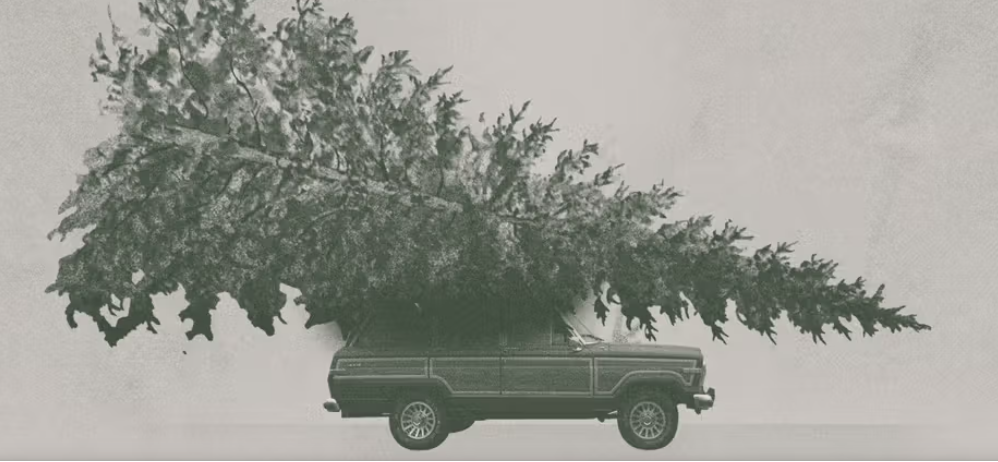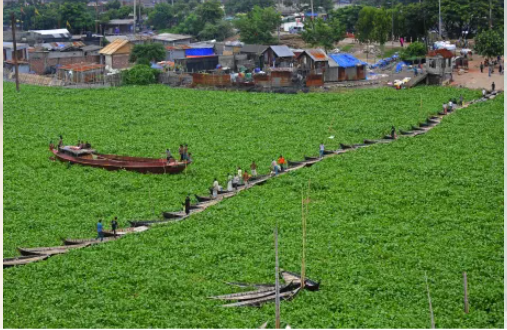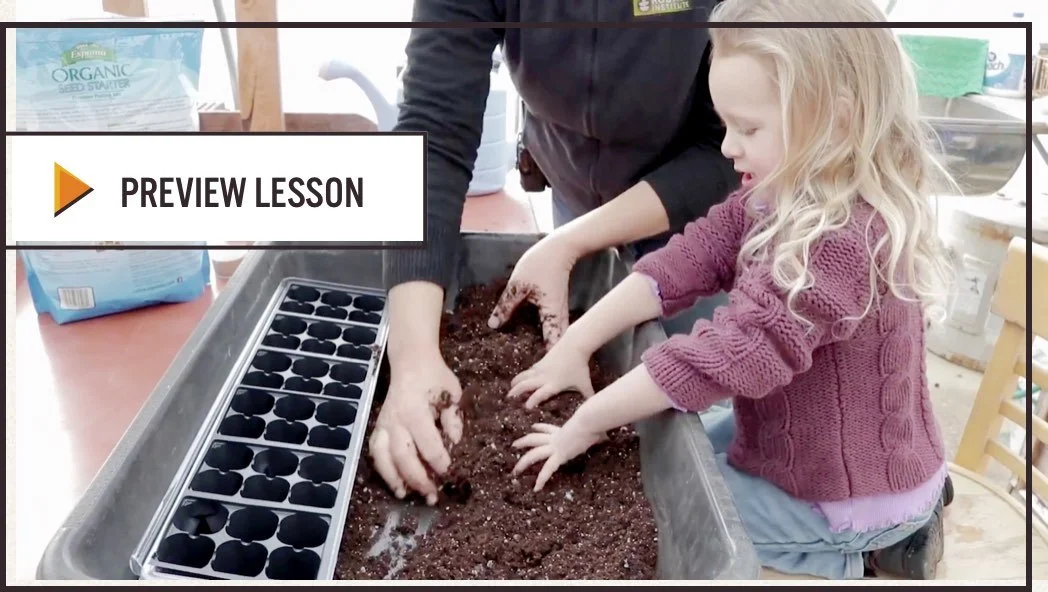Welcome to our 15th St Farm Resource Library!
This is an initial pilot sample of the Library with annotated entries for a wide range of resources. Check out the contents here or using the tab below. And find what you need using the search options.
Refer also to the Research Table layout.
Our 15th St Farm is a nonprofit, urban educational farm that facilitates learning and community building around healthy food from soil to fork. At the foundation of our farm are regenerative agriculture principles and practices. On that foundation, we build our educational programming using 4 pillars: Healthy Soil (and Compost), Healthy Plants (and Seeds), Health People and Healthy Communities.
Our target audiences for this library include our current educational partners as well as anyone interested in these concerns and topics.
Our strategy is to launch the Library at this point so people can begin to use it. We will continue to add entries (of which we have many!). We hope users benefit from and interact with the contents and the general layout of the library, and we’d very much appreciate any input you’d like to share.
Let’s grow this library together into the unique tool it is designed to be!
~ The 15th St Farm Library Team
Emmanuel Roux, Founder
Betsy Barbour, Education Consultant
Sara Reinelt, Library design and formatting
Search Research Database:
Search Blogs:
We found unhealthy pesticide levels in 20% of US produce - here’s what you need to know
Description: (article & nice chart with lots of specific produce) research, Instructors - high school
Contents: When it comes to healthy eating, fruits and vegetables reign supreme. But along with all their vitamins, minerals and other nutrients can come something else: an unhealthy dose of dangerous pesticides; background notes on pesticide use, update & red flags, issues with EPA assessment techniques, specific produce items, pesticide effects, how to avoid pesticides, how to solve the problem
Source: theguardian.com & Consumer Reports
Crossposted: Library Toolkit/ Regenerative agriculture - Issues, Healthy People - Toxicity ; Library Resources/ Plants - Issues, Pesticides
Comments
Entered Title: (Region - North America) Can gene editing save Christmas trees from climate change?
Description: (article) research, instructors - high school
Contents: growers…collaborating with researchers across the U.S. and Canada to help the billion-dollar industry adapt to climate change and compete with artificial trees; challenges - rising temperatures, increased pests and pathogens; GMO concerns
Crossposted: Library Toolkit/ Entrepreneurs, Regenerative Agriculture - Issues; Library Resources/ Plants - Trees
Comments
Entered Title: (Region - England) The English farmers who harvest rhubarb by candlelight
Description: (article) Instructors - adaptable for all ages
Contents: background, how it works - forcing process, rhubarb on the rise
Source: Smithsonian magazine
Crossposted: Library Toolkit/ Education - Cultural considerations - England & Indigenous knowledge; Library Resources / Plants - Specific plants
Comments
What happens to your body when you eat papaya regularly
Description: (article) research, Instructors - high school, adaptable for all ages
Contents: Papaya (Carica papaya) is a tropical American fruit that is green when unripe and light or deep yellow-orange with orange or red juicy flesh when ripe. Papayas are high in vitamins, minerals, and other beneficial substances. Papaya has been used in folk medicine to treat several health concerns, including gastrointestinal (GI) and skin problems, and is an interest to the pharmaceutical industry for its potential health benefits.
Source: verywellhealth.com https://www.verywellhealth.com/papaya-8748529
Crossposted: Library Resources/ Plants - Specific Plants, Trees & Medicinals; Library Toolkit/ Library Toolkit/Cultural considerations - Region, India & Indigenous knowledge; Healthy People - Human gut science, Food as medicine
Comments
Entered Title: Water Hyacinth - This alien plant is lethal for the environment, now it’s being turned into a plastic to regrow forests
Description: (article, lots of great photos) Instructors - middle & high school
Contents: Water hyacinths are native to South America, but were introduced as an exotic ornamental to many other countries. They’ve since taken over freshwater environments and are labeled an alien invasive species on every other continent aside from Antarctica: environmental impacts, attempts to eradicate, bioplastic innovation - project, scaling up
Source: cnn.com/Africa https://www.cnn.com/world/africa/hyacinth-alien-plant-environment-plastic-spc
Crossposted: Library Toolkit/ Cultural considerations - Region, Africa; Regenerative Agriculture - Issues; Library Resources/ Plants - Issues, Toxicity & Plastics
Comments
(2/7/25) related research in Indonesia (article & free downloadable PDF, very technical - but good sample)
https://ejournal.upi.edu/index.php/AJSE/article/view/37801/pdf
Papaya with seeds as a detox
Description: (article - video, social media influencer w/ medical professional input) Instructors - high school, adaptable for all ages
Contents: The thought of ridding our bodies of the bad stuff and getting healthier sounds amazing. But should we eat 'papaya seeds for 7 days to detox 7 times faster':: papaya seeds are magnets for toxins & parasites
Source: hindustanhealth.com/lifestyle/health
Crossposted: Library Resources/ Plants - Trees & Medicinals: Library Toolkit/ Cultural considerations - Region India, Healthy People - Food as medicine
Comments
Papaya seeds benefits - how the habit of consuming papaya seeds daily can improve health
Description: (article, sectioned into individual ‘lessons’) Instructors - adaptable for all ages
Contents: If there is one seed, which is often discarded without thinking much, it is the papaya seeds. Many people habitually discard papaya seeds without realising their significant health benefits: nutrition, digestive health, liver detoxification, antiparasitic, anti-inflammatory, antioxidant, kidney health, etc plus adding to daily diet
Source: timesofindia.indiatimes.com/kife-style/food-news
Crossposted: Library Resources/ Plants - Specific Plants, Trees; Library Toolkit/ Cultural considerations - Region Asia, India; Healthy People - Human gut science, Food as medicine
6 Reasons to (add) raw papaya salad to the diet
Description: (article, recipe) Instructors - adaptable to all ages
Contents: description of uses & cultural context, health advantages
Source: indiatimes.com/lifestyle/food-news https://timesofindia.indiatimes.com/life-style/food-news/6-reasons-to-add-raw-papaya-salad-to-the-diet/articleshow/114457776.cms
Crossposted: Library Toolkit/ Cultural considerations - Region, India; Healthy People - Human gut science, Food as medicine & Recipes; Library Resources/Plants - Trees
Recycling human and animal excreta could help meet nutrient supply for global crops
Description: (article) research, Instructors - high school
Contents: It might not be a pleasant image, but recycling all the human and livestock feces and urine on the planet would contribute substantially to meeting the nutrient supply for all crops worldwide, thereby reducing the need to mine fertilizers such as phosphorus and dramatically reducing the dependency on fossil fuels, according to a global analysis of nutrient recycling published in Nature Sustainability.
Source: phys.org/news https://phys.org/news/2024-12-recycling-human-animal-excreta-nutrient.html
Crossposted: Library Toolkit/Cultural considerations - global, Regenerative agriculture - Issues; Library Resources/ Soil - Specific Topics & Compost - Specific Topics
Soil Biodiversity - The magical world of soil biodiversity & its translation in Portuguese and Kyrgyz
Description: (collection of stories/book, pdf link) Instructors - all ages
Contents: A collection of 10 stories for kids from around the world to dig in and discover the magic that lies beneath our feet. The soil biodiversity book competition for children highlights the importance of soil organisms and raises awareness of the urgent need to protect soil biodiversity among a young audience (children aged 6-11 years). This collection of 10 stories includes the best entries received from more than 80 books spanning over 60 countries.
Source: Food & Agriculture Organization (FAO) (United Nations)
https://www.fao.org/global-soil-partnership/resources/highlights/detail/en/c/1599318/
Crossposted: Library Toolkit/ Cultural considerations - Global, Biospheres, Healthy Communities - online communities; Library Resources/ Soil - Specific Topics
In Svalbard, the global seed vault banks biodiversity & sprouts controversy
Description: (article) research, Instructors - high school
Contents: Two-thirds of the world’s food comes today from just nine plants: sugar cane, maize (corn), rice, wheat, potatoes, soybeans, oil-palm fruit, sugar beet, and cassava. In the past, farmers grew tens of thousands of crop varieties around the world. This biodiversity protected agriculture from crop losses caused by plant diseases and climate change. Today, seed banks around the world are doing much of the work of saving crop varieties that could be essential resources under future growing conditions. The Svalbard Global Seed Vault in Norway supports them all. It is the world’s most famous backup site for seeds that are more precious than data; background info, controversies, indigenous biocultural heritage notes
Source: atlasobscura.com https://www.atlasobscura.com/articles/svalbard-global-seed-vault-purpose?utm_source=Klaviyo&utm_medium=email&utm_campaign=Daily%20newsletter%2012%2F9%2F2024&_kx=hg_0yVQLccu5UwSuT4i9EujiUMiu5nBKktRbzhUFoW0.UUnqkC
Crossposted: Library Resources/ Healthy Plants - Seeds, Issues; Library Toolkit: Marginalized Peoples & Food Systems, Biospheres
Urban gardening in early medieval Italy
Description: (seminar abstract & video) Instructors - high school
Contents: Food-growing gardens first appeared in early medieval cities during a period of major social, economic, and political change in the Italian peninsula, and they quickly took on a critical role in city life. Food-producing gardens were essential from an economic point of view but they also played important cultural, religious, and political roles, especially within cities.
Source: medievalists.net https://www.medievalists.net/2024/11/urban-gardening-in-early-medieval-italy/
Crossposted: Library Toolkit/ Education - Value, Cultural considerations, Historic & Region - Europe, Italy; Indigenous knowledge
Entered Title: (Historic) Sourdough Bread - Should you eat it?
Description: (article) Instructors - all ages
Contents: While sourdough might seem like just another type of bread you can make or buy, it actually used to be one of the only options. Until the development of commercial yeasts in the 1800s, sourdough, made with naturally occurring yeasts and lactic acid bacteria, was the main type of leavened bread consumed worldwide: benefits, risks
Source: health.com https://www.health.com/sourdough-bread-benefits-8780654
Crossposted: Library Toolkit/ Healthy People - Health & Nutrition
(Historic) Notre Dame Cathedral and the rebirth of artisanship
Description: (article) Instructors - high school
Contents: one of the most amazing construction projects of this millennium. As one of about 300 historical architects who wrote to President Macron after the fire to insist that he rebuild exactly what was there before the fire
Source: commonedge.org https://commonedge.org/notre-dame-cathedral-and-the-rebirth-of-artisanship/
Crossposted: Library Toolkit/ Cross-disciplinary, Entrepreneurship
Comments
(Winter, 2025 - Emmanuel Roux) …to be distributed far and wide to all instructors and teachers
(Winter, 2025 - Betsy Barbour) excellent example of communities coming together and collaborating on a project of inestimable cultural value
Native American heritage: celebrating food, tradition & health
Description: (article, events, resources) Instructors - all ages
Contents: Celebrate Native American Heritage month each November: discover indigenous cuisines & nutrition, explore Native American agriculture heritage, access curated resources for curated communities
Source: USDA National Agricultural Library
https://content.govdelivery.com/accounts/USDAARS/bulletins/3b94253
Crossposted: Library Toolkit/ Education - indigenous knowledge, Cultural considerations - Historic, Region (North America)
(Historic) Chilling historical photo captures the deadly impact of humans
Description: (article, video link) Instructors - high school
Contents: We are living through a period of unprecedented species extinction due to human-induced changes to the planet's ecosystems. This is not the first time human activities radically changed relationships between land and life: the iconic image (a mountain of bison skulls) - background, impact, issues, multi-species relationships, looking ahead
Source: sciencealert.com https://www.sciencealert.com/chilling-historical-photo-captures-the-deadly-impact-of-humans
Crossposted: Library Toolkit/ Education - Indigenous knowledge, Biospheres
Title: (Historic) Bright Tide delivers the Wright approach to regenerative farming
Description: (article) Instructors - high school
Contents: In early 2024, in the heart of a small Italian village named Castel Del Giudice, cradled by apple orchards and well-known for its Città del Bio (Organic Town) circuit, Harry Wright— Founder and CEO of UK-based environmental consultancy, Bright Tide— was introduced to a system of farming that would transform his business forever…Wright would learn about the transformative power of regenerative farming- a sustainable alternative to the extractive practices of conventional food production: Italian roots, value & practises of regenerative
Source: forbes.com https://www.forbes.com/sites/daphneewingchow/2024/11/06/bright-tide-delivers-the-wright-approach-to-regenerative-farming/
Crossposted: Library Toolkit/ Regenerative Agriculture & Cultural considerations - Region, Italy
Why ultraprocessed foods aren’t always bad
Description: (article, opinion) research, Instructors - high school, basics adaptable for all ages
Contents: …following recent headlines, it may seem like there’s a single culprit (to all Americans’ food woes): ultraprocessed foods…(BUT) experts felt that there wasn’t enough reliable science to draw accurate conclusions. LOTS of cons,yes - BUT category is too broad: specifics about food types, energy density, consume-ability, additives, reality for many consumers food access
Source: Salt Lake Tribune, opinion - https://www.sltrib.com/opinion/commentary/2024/12/18/opinion-why-ultraprocessed-foods/
Crossposted: Library Toolkit/ Health & Nutrition
Survival of Probiotics
Description: (article/study report) research, Instructors - VERY technical medical info
Contents: Abstract, Mat’l & Methods, Results, Discussion - Lactobacilli of intestinal origin are considered intrinsically resistant to acid environments and are often employed in fermented foods as probiotics.
Source: National Library of Medicine
Crossposted: Library Toolkit/ Biospheres - Microbiomes
Comments
~ (Betsy, 6/13/24) useful for some info on trending of probiotics in healthy nutrition
Investigating the soil food web
Description: (complete unit, video) Instructors - ages 7-13 adaptable for all ages
Contents: Junior Landcare provides children the opportunity to play an active role in ensuring the safe future of our natural environment; story, overview, outcomes, seasonal notes, instructions, extension activities & references
Source: juniorlandcare.org - https://juniorlandcare.org.au/learning_activity/investigating-the-soil-food-web/
Crossposted: Library Resources/ Soil - Units & Projects
Your food is less nutritious than it used to be
Description: (article) research, Instructors - adaptable for all ages
Contents: As our climate changes, our food is at risk of immediate dangers such as fires and floods. But there are long-term impacts that have already changed the makeup of the food you eat.
Source: Bittman Project https://bittmanproject.com/your-food-is-less-nutritious-than-it-used-to-be/
Crossposted : Library Toolkit/ Health & Nutrition - Human gut science - you are what you eat
Seed Preservation
Description: (lots of resources) Instructors - all ages
Contents: the living collection, the Exchange - seed swap, community science (to regenerate and evaluate collection varieties by engaging a diverse community of gardeners and farmers), census directories - one-of-a-kind compilation documenting the commercial seed trade of open-pollinated varieties, partnerships
Source: Seedsavers.org https://seedsavers.org/preservation
Crossposted: Library Toolkit/Healthy Communities - Online communities
All about seeds - My First Garden, How Seeds Grow
Description: (comprehensive package) Instructors - early ages, adaptable through gr 6
Contents: This lesson will teach children the life cycle of a seed and what it needs to grow into a plant, with fun activities that include tasting and starting to grow their very own seeds.
Source: Rodale https://rodaleinstitute.org/myfirstgarden/lessons/how-seeds-grow.php
Crossposted: Library Resources/ Seeds - Lessons
Serving Vegetables in the CACFP (Child and Adult Care Food Program)
Description: (article & resource links, printable handouts) research, instructors; adaptable for all ages
Contents: CACFP specifics but useful for anyone interested in nutrition education - intro, adding vegs to your menu, test your CACFP Veg knowledge, meal planning considerations, creditable food sources
Source: CACFP https://www.cacfp.org/assets/pdf/USDA+FNS+-+Serving+Vegetables+EN-SP+cacfp.org/
Crossposted: Library Toolkit/US Government resources, Health & Nutrition; Library Resources/ Plants - Specific topics
Title: (Organic Food) Why organic food matters: the hidden cost of non-organic food
Description: (article) Research, Instructors - high school, adaptable for middle school
Contents: supports soil regeneration, reduces carbon emissions, preserves biodiversity, and helps both farmers and consumers thrive: issues with nutritional quality of produce; interdependence of soil, plants for higher nutritional quality; “if we choose our food with care, its impact could possibly be the biggest contribution each of us makes to protect the planet and, equally crucially, our health…”
Source: thehindu.com/nation/agriculture https://frontline.thehindu.com/the-nation/agriculture/organic-farming-benefits-soil-health-climate-change-food-quality/article69083521.ece
Crossposted: Library Toolkit/Cultural considerations - Region, Asia, Regenerative agriculture; Library Resources: Soil - Specific Topics & Issues; Plants - Specific Topics & Issues
Nutrition labels may come to the front of food packages under FDA proposal
Description: (article) research, Instructors - middle & high school
Contents: The US Food and Drug Administration is proposing that nutrition information be placed on the front of packaged foods to provide at-a-glance information about saturated fat, sodium and added sugar: FDA nutrition priorities, nutrition info box - contents, advantages, expectations
Source: cnn/health https://www.cnn.com/2025/01/14/health/nutrition-labels-fda-proposal
Crossposted: Library Toolkit/ Health & Nutrition
Meet the economist who wants the field to account for nature
Description: (article) instructors - highschool
Contents: Gretchen Daily is working to make the environment more of an element in economic decision making.
Source: technologyreview.com
Crossposted: Cross-diuscipline, Economics
Healthy Soil
Description: (website with lots of resources) Instructors - all ages
Contents: Soil is more than just a medium for growing your plants – it has a life of its own! Each scoop of soil contains millions of microbes that keep the tiny ecosystem functioning, which is essential for growing food and creating living landscapes. When we think about soil as a living system, we can better understand how its health can change based on how we treat it; healthy soil as a priority, soil is alive, what soil is made of, how do we assess soil healthy and keep it healthy
Source: Tulatin Soil and Water Conservation District https://tualatinswcd.org/priorities/healthy-soil/
Crossposted: Library Toolkit / Biospheres - Soil Microbiomes, Websites
Garden Adjective Adventure
Description: (complete lesson which can be made into a Unit) Instructors - all ages
Contents: “A garden space is full of things (both living and nonliving) that engage the senses. In this lesson, students use the garden as a muse for growing their descriptive writing skills.”
Source: kidsgardening.org https://kidsgardening.org/resources/lesson-plan-garden-adjective-adventure/
Crossposted: Library Resources/ Plants, Seeds, Compost - Lessons section in each






























Entered Title: Braiding Sweetgrass
Description: (book) research, instructors - individual chapters & sections adaptable to all ages & for high school report
Contents: “Drawing on her life as an indigenous scientist, and as a woman, Kimmerer shows how other living beings--asters and goldenrod, strawberries and squash, salamanders, algae, and sweetgrass--offer us gifts and lessons, even if we've forgotten how to hear their voices. In reflections that range from the creation of Turtle Island to the forces that threaten its flourishing today, she circles toward a central argument: that the awakening of ecological consciousness requires the acknowledgment and celebration of our reciprocal relationship with the rest of the living world. For only when we can hear the languages of other beings will we be capable of understanding the generosity of the earth, and learn to give our own gifts in return.”
Source: borrow from Library or purchase - https://shelburnefarms.org/about/news-and-stories/braiding-sweetgrass-book-review
Photo Credit: Book cover
Crossposted: Library Toolkit/Education - Indigenous knowledge, Marginalized People groups & food systems; Library Resources/ Healthy Plants - Topics, Plant intelligence